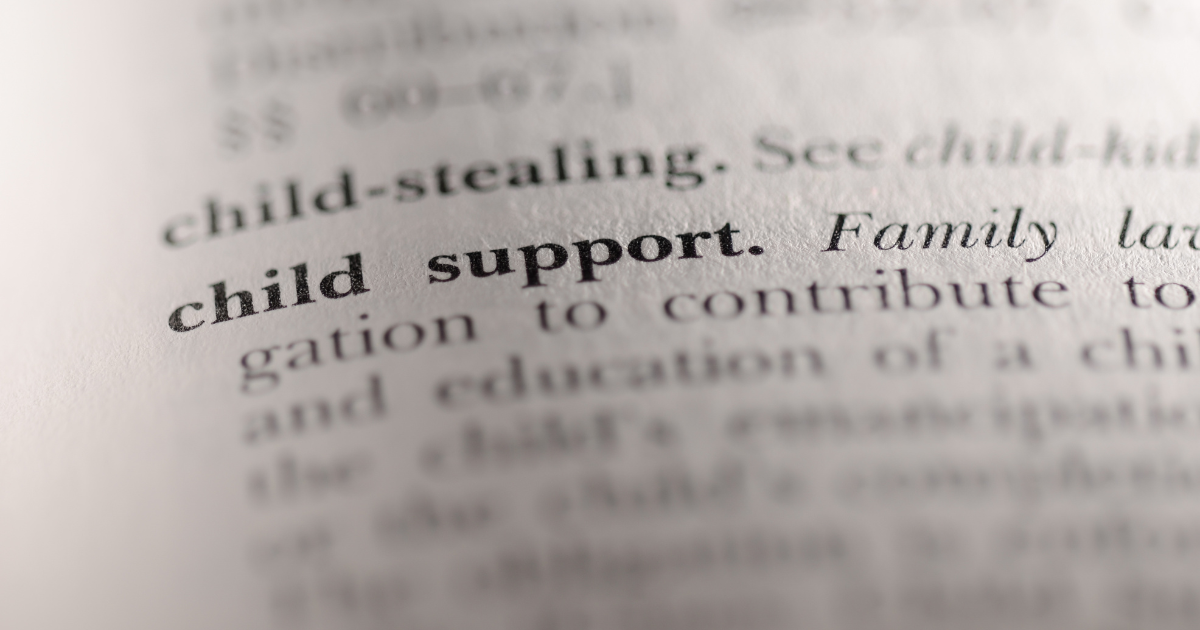
15 Nov When Should You Use a Private Child Support Agreement?
Separation and divorce are challenging times for all parties involved. And if the splitting couple has children together, this major life change can bring even more strain and stress to an already-difficult situation.
There will be many steps and processes to take in the journey to divorce, but one that should be carefully considered is the issue of child support. Ensuring you have a fair and reasonable private child support agreement in place will help ensure the financial security of your child – not to mention your own sanity.

What is child support?
Typically, both parents of a child are liable for sharing the financial responsibility of their dependant until the child is 18. But when parents separate or divorce, the financial responsibility splits. Both still share responsibility, but in order to make things equable, one parent may need to make a payment to the other to assist with the costs of looking after their shared children. (In some cases, these payments may be made by one or both parents to an external person who is looking after the child.)
This payment is called child support.
Child support is generally paid until the child in question turns 18 years old. However, there are some cases in which child support may be stopped early, such as if the child becomes self-sufficient, is adopted or enters into a de-facto or marriage-like relationship.
What is a private child support agreement?
If both parents can agree on the terms of child support, they can create a legally enforceable, private child support agreement. This agreement will stipulate the amount, frequency and method of child support payments. It will also include a broad range of expenses relating to looking after children, such as school fees, health insurance and extracurricular costs.
Two Types of Private Child Support Agreements
There are two types of private child support agreements in Australia. The first is a limited agreement, and the second is a binding agreement.
- Limited Agreement- A limited child support agreement is a written agreement signed by both parents. In order to enter into a limited agreement, you must have an administrative assessment in place, and the amount of child support agreed upon must be equal to or greater than the assessment.
- Binding Agreement – Unlike a limited agreement, a binding agreement can be made and accepted even if a child support assessment hasn’t been made. It can for any amount as long as both parents agree, even if an assessment has been made. In addition, both parties must get legal advice before entering into or ending a binding agreement.

Things to Consider Before Entering into a Child Support Agreement
All private child support agreements will vary according to individual circumstances. And they may extend to other expenses, depending on the particular family and child’s situation, which could change over time.
A private child support agreement should not be entered into lightly. Both parties should obtain legal advice to ensure that things are fair and that all financial matters have been adequately covered. (This is also a requirement of a binding agreement.)
Children ought to be carefully considered when navigating a separation or divorce, and there are many ways parents can make the process smoother for their dependants. Make sure you consult our extensive online database of family law resources as well as blog articles that deal with a range of issues related to divorce and separation.
Benefits of a Private Child Support Agreement
A private child support agreement gives certainty and peace of mind to the parents that their child will be financially secure. It also reassures the child that they will be adequately supported financially into the future.
The agreement allows the two parents to negotiate terms they are happy with. And with a binding agreement, you don’t even need to rely on the assessment of a third party.
It avoids additional processes and red tape, which are already extensive in a separation or divorce.
The agreement is legally enforceable.
Drawbacks of a Private Child Support Agreement
The agreement is made in relation to the financial positions of both parties at the time of the commitment – but that may change down the track. For example, one parent might lose their job while the other could get a promotion and a pay rise, but the agreement would not automatically change to reflect this.
The power dynamic of the relationship may come into play when negotiating the terms of the agreement and could result in an unfair situation for one of the parties. However, sound legal advice from a trusted lawyer should protect you from this happening.

When Should You Use a Private Child Support Agreement?
Parents who are separating or divorcing should always consider entering into a private child support agreement. This allows both parents to make their own private arrangements to provide for the financial support of their children. It gives all parties confidence that the children will be well cared for financially and paves the way for a more amicable split. And it allows you to stay out of the court system, keeping costs low.



